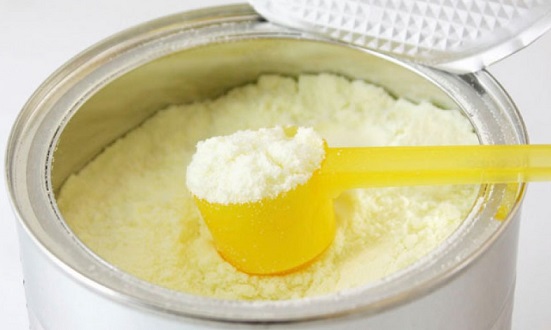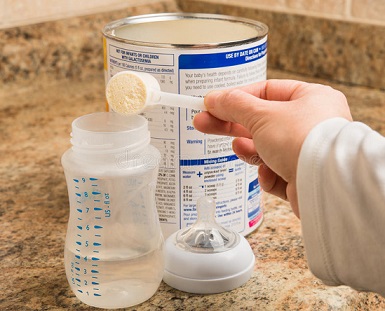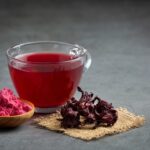
If you comb through your kitchen cupboard, you will likely agree that palm oil is a common household element and a key ingredient in many household products and food items.
Interestingly, palm oil is also routinely incorporated into many infant formulas to provide babies with a dietary supplement of essential fatty acids (EFAs) needed for rapid and healthy growth.
Palm oil, like other plant-based vegetable oils, is a fatty acid that has high levels of saturated and monounsaturated fat (40%-50%) and about 10% polyunsaturated fat.
Palm oil provides fat like that of breast milk but the big questions are: is it safe and healthy for babies? Does it meet the essential fatty needs of an infant?
There is a lot of controversy surrounding the use of palm oil for baby formulas. Despite palm oil being commonplace, its presence in infant formulas may not bode well for your little bundle of joy. So if you do find palm oil among the ingredients of your baby formula, you should read on to know the implications.
Breast milk consists of fats, proteins and carbohydrates. Fat (lipids) is the most important component because it produces 50% of the calories in breast milk which aids in absorbing minerals and vitamins and acts as a source of energy for babies.

The most abundant fatty acids in breast milk include linoleic acid, oleic acid, stearic acid and palmitic acid.
Infant formulas are designed to closely approximate each nutritional component of breast milk by using ingredients that give it similar properties of carbohydrates, vitamins, proteins, minerals, and fat.
Baby formulas commonly use vegetable oils like safflower, rapeseed, and palm oil as the main source of fatty acids.
The composition of fatty acids in breast milk depends on the mother’s diet which translates to babies being able to digest various fatty acids naturally no matter the slight blend changes that may occur.
As earlier stated, baby formulas are aimed at matching breast milk fat profiles as closely as possible. In other words, it mimics the breast milk composition, which is considered the gold standard. Many infant formulas add palm oil to provide palmitic acid which is also per their 100% vegetable fat recipe.
Palm (olein) oil is a great source of palmitic acid which is roughly a quarter of the fatty acid present in breast milk. The fats present in breast milk account for more than half of the required energy for healthy growth.
Aside from giving babies energy, palm oil fats (lipids) are categorized as essential fatty acids (EFAs) that promote brain development and function, tissue growth and cardiovascular health.
Babies’ brains have twice as many neurons than adults and these neurons come from lipids. So, these EFAs are the very foundation of life and neurodevelopment.
Additionally, palm oil is a dietary source of palmitic, linoleic, and oleic acids and also a good source of vitamins A and E. It is also helpful in boosting cholesterol levels.
Easy Ways to Lose Weight while Breastfeeding
How Postpartum Depression Affects New Mothers: Ways to Overcome

Palm oil is used in many formulas, yet its effects on babies is questionable. Palm oil is perceived as safe for babies, but certain drawbacks lay this notion a little flat.
Palm olein oil is the product of refined palm oil. Palm oil additives in formulas hurt babies’ digestive systems.
Some babies tend to excrete harder stools after consuming formulas containing palm oil. This is a result of solidified calcium-fatty-acid complexes (calcium soaps).
Palm oil provides fat just like breast milk does, but it can be very harsh on a baby’s digestive system. In the process of digesting palm oil, a free fatty acid known as palmitic acid floats in the baby’s intestines and binds with the calcium molecules which form insoluble calcium-palmitate soaps and undigested particles. The insoluble calcium soap particles are then excreted as harder stool and also lead to constipation.
According to numerous studies, the molecular configuration of palmitic acid in palm oil is very different from the palmitic acid structure in breast milk. Essentially, babies digest the triglycerides in breast milk better than the ones in palm oil.
Babies can digest breast milk fats because their stomach has lipase enzymes that properly break down the milk’s fatty acid.
Since the palmitic acid in breast milk is not absorbed like the palmitic acid in palm oil, it forms the aforementioned insoluble soap that binds with free calcium ions which forms harder stools and causes a lot of discomfort in babies including constipation.
Fat is essential for infant nutrition because it acts as a source of energy for babies and assists in absorbing fat-soluble vitamins needed for proper growth.
More so, babies need sufficient amounts of calcium to develop healthy teeth and strong bones. When baby formulas use palm oil or palm olein (PO/POL), some fatty acids will not be absorbed.
On average, the fat contained in breast milk is approximately 2.6 g per 100 ml and for baby formulas, it is approximately 3.4 to 3.8 g per 100 ml.
Additionally, the calcium in breast milk is 200 to 250 mg/l. which is approximately 33.5 mg/5 fl oz of calcium.
Baby formulas, as indicated by their product labels, usually have 70 to 80 mg per 5 fl oz. that’s a little over the amount found in breast milk.
Clinical studies have confirmed that formulas containing palm olein oil as the most prevalent fat source prevent babies from absorbing good fat and other important minerals like calcium.
This poor absorption of fat and calcium results in reduced bone mineralization (bone density), less absorbed energy, and lower bone mass.
Jaudenes, Castanys-Munoz, Ramirez, and Lasekan conducted a study on the Physiological Impact of Palm Olein or Palm Oil in Infant Formulas: A Review of Clinical Evidence. In the study, the focus was on the physiological effects of PO/POL formulas in healthy infants.
The study found that the PO/POL in infant formulas lowered fat, DHA, palmitate and calcium absorption, bone mineralization; soft stools; and growth (weight accretion) when compared to formulas without PO/POL additives.
Comparatively speaking, the nutrients in baby formulas are not readily bioavailable like breast milk and so to make up for this, formulas provide these nutrients in excess.
This means that there is more calcium and fat than needed in formulas, so some will go to waste and may not affect a baby’s growth.
Babies who are born early need optimal calcium absorption. This is important because of the calcium they missed out on in the last few weeks of gestation, which is a period for developing bone density and growth.
So, to make up for the loss of calcium, consider using a baby formula that has other sources of fat like rapeseed or sunflower oil.
Research has clearly proven that when palm oil is heated during the refining process, it releases harmful levels of GE (Glycidyl fatty acid esters) and 3-MCPD (3- monochloropropanediol).
Various animal studies also confirm that GE can damage DNA (genotoxic) which causes mutations. Also, GE can lead to cancer (carcinogenic) and the 3-MCPD can damage the kidney.
If it doesn’t affect your baby’s weight and growth, then there is no need to worry about palm oil in the formula. However, if your baby gets constipated frequently and tends to pass out hard stools, the formula is certainly the causative agent. So, it’s a no-brainer to try another baby formula without palm oil and see the difference.
Palm oil is an edible vegetable oil that is produced from the fruits of palm trees. Palm oil is a very popular ingredient in many food items and products.
Palm oil is also a common ingredient in baby formulas but more research is needed to link palm oil with harder stools.
Generally, most babies can actually digest a wide variety of fatty acids, including the palmitic acid from palm oil, with little difficulty.
However, babies with very sensitive digestive systems, and those born early, stand the risk of having harder stools or constipation due to the formation of calcium soaps.
Although the effects of palm oil on babies are entirely individual, the safest option would be to use a gentle, easy-to-digest baby formula in your baby’s diet. If you must use a formula with palm oil, Consult an Expert Pediatrician to make an informed decision and proceed with caution.
References
Koo, W.W.K., et al, “Reduced bone mineralization in infants fed palm olein-containing formula: A randomized, double-blinded, prospective trial.” Pediatrics 2003; 111:1007-1023.
Nelson, S.E. et al, “Absorption of fat and calcium by infants fed a milk-based formula containing palm olein.” J Am Coll Nutr 17: 327-332.
Padial-Jaudenes M, Castanys-Munoz E, Ramirez M, Lasekan J. Physiological Impact of Palm Olein or Palm Oil in Infant Formulas: A Review of Clinical Evidence. Nutrients. 2020 Nov 28;12(12):3676. doi: 10.3390/nu12123676. PMID: 33260586; PMCID: PMC7759907.s
healthcareNovember 7, 2024
MedicationNovember 25, 2024
NutritionFebruary 5, 2025
MedicationFebruary 5, 2025








